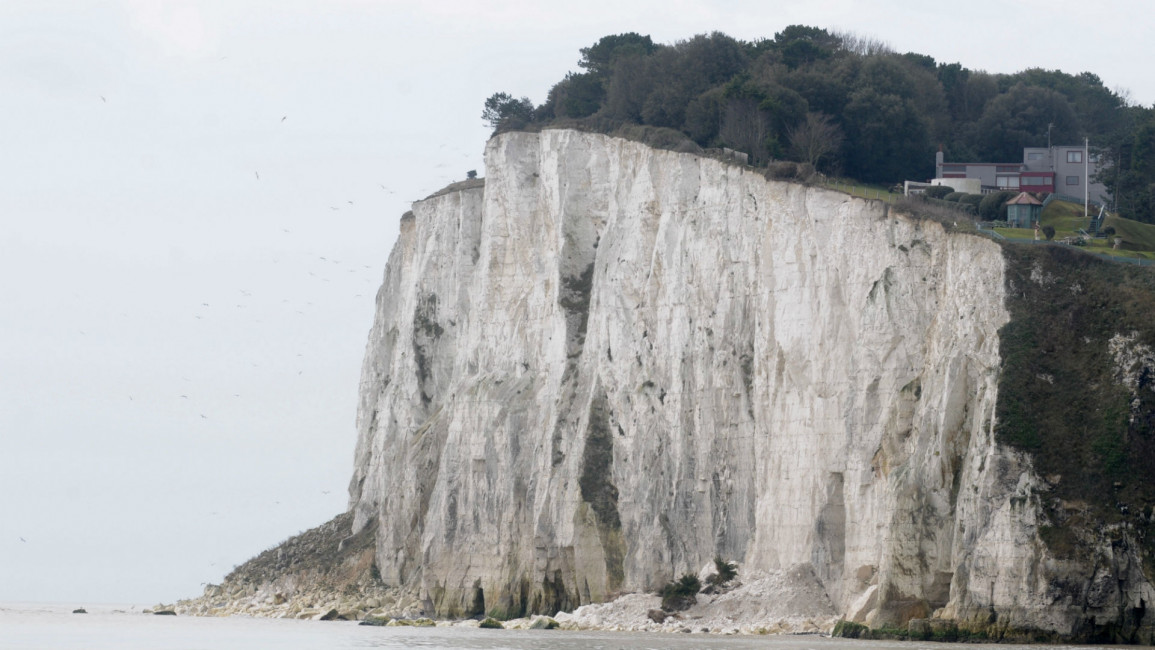Iranian migrants 'used visa-free Serbia' to begin perilous journey to the UK
Scores of Iranians have travelled to Serbia, where they do not need visas, before making the perilous journey to the UK by inflatable boat, the BBC has reported.
Over 100 migrants have been picked up by British coastguards in the past three weeks in the Channel, as they travelled from France to the UK in dinghies. All of them have been Iranians.
UK border guards fear the situation could lead to bodies being washed up on British shores if more Iranians attempt to navigate the 21-miles of choppy water, a journey that has been described by police as "trying to cross the M25 [motorway] at rush-hour on foot".
On 23 November, eight migrants were found off the coast of Kent clinging onto an inflatable boat, according to the BBC, with seven more Iranians found onboard another small hours later.
All the hundred-plus migrants who have been picked up off the UK's shores in the past weeks were Iranian, with their stories beginning 1,500km away in Belgrade.
For one year, Serbia allowed Iranians to enter the country visa-free, in a bid to boost tourism and trade with Tehran.
The visa waiver system was ended in October, when Belgrade claimed that some Iranians were abusing the system by using Serbia as an entry point to illegally enter the EU, where they disappeared or sought asylum.
The numbers of Iranians who have entered Belgrade during this period vary between 15,000 and 40,000.
It is not clear how many Iranians remained behind in Europe, but anecdotal evidence suggests that flights from Iran had been arriving to Serbia full and departing the country empty. Serbian police estimated that 12,000 never returned, according to the BBC report.
Serbia was part of the Balkans migration route, for Syrian, Afghan, Iraqi and other refugees hoping to find a better, safer life in Europe.
They made the treacherous journey by land through the Balkans - often navigating along railway lines - risking arrest, extreme weather, gangs and fast-moving locomotives.
Iranians, however, were able to travel directly to Serbia by air and then book hotels in other European countries, or use false passports to get around.
Iranian travelers look "more like tourists... they were kids in hoodies and jeans, with backpacks", Gordan Paunovic, of Info Park told the BBC.
"They didn't share the normal fate of refugees and migrants who have a very hard time in the Balkans. They would not be forced to sleep rough or go to refugee centres like the other people... They were here for a month, staying in hotels, and would find a smuggler to make other arrangements."
The Iranians who fled to Europe are often forced out of the country due to the Tehran regime's human rights abuses, general lack of freedoms, and the enforcement of an austere version of Islam.
"People get arrested if they have liberal or left-wing views, or if they are from religious minorities. A lot of people experience violence on a daily basis," Kaveh Kalantri, of the Iranian Association told the broadcaster.
The reason that all the migrants picked up off the UK's shores were Iranian is put down to the fact that the wealthier migrants were able to afford the final leg of the journey to Britain by boat.
Bridget Chapman, of Kent Refugee Action Network, told the BBC that the rise in numbers of refugees travelling by boat is due to the Jungle Camp in Calais being dismantled and tighter security on the border.
Europe witnessed a surge in migration in 2015, due to devastating Syrian regime offensives on opposition areas, and the war against the Islamic State group in Syria and Iraq.
The EU agreed a deal with Turkey to tighten its borders, which saw a drop in migrants travelling through the Balkans route.

![Bahrain [getty] Bahrain [getty]](/sites/default/files/styles/image_330x185/public/media/images/5F28B59A-942B-4B6A-A5A8-09D476D1E68D.jpg?h=d1cb525d&itok=NJNXWh5z)

